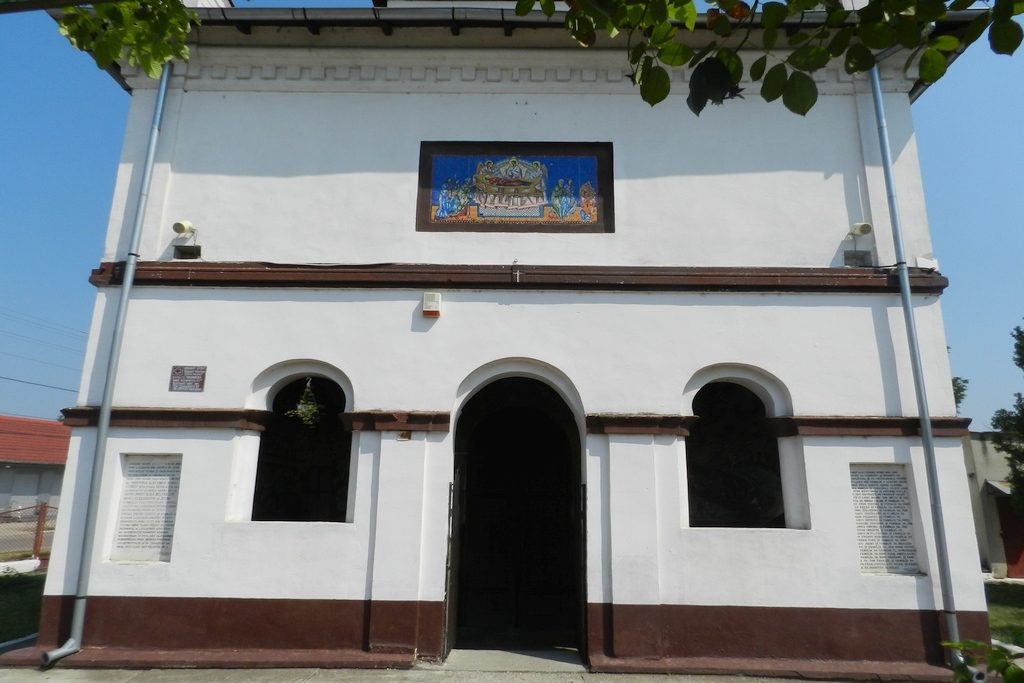

The “Assumption of Mary” church from the municipality of Băilești started to be built up from the foundation on the 8th of July 1885 and it was finished on the 5th of September 1887.
The principal founder of the church is the Prince Alexandru Barbu Știrbei.
The prince Barbu Alexandru Știrbei (1872 – 1946) was a political man from Romania, president of the Council of Minister, minister of interior and ad-interim at the Finances and at the External affairs, member of honor of the Romanian Academy.
He played a special role in the country’s politics until the year 1932, when he was exiled by Carol the IInd.
Prince Barbu Știrbey finished high-school, as well as the classes of the Faculty of Juridical Sciences from Paris. He got married in 1895 at Geneva with Nadeja Bibescu, his IInd degree cousin, with whom he had four daughters: Maria (1896 – 1990), Nadejda (1897 – 1994), Eliza (1898 – 1987) and Ecaterina (1902 – 1946).
In the year 1913, King Carol the IInd names Barbu Știrbey, administrator of the Domains of the Royal Crown. Between the crown prince Ferdinand and Barbu Știrbey there was formed a powerful friendship. Becoming king, Ferdinand will take Știrbey as his personal adviser. Also, between Queen Maria and Știrbey the relationships were extremely friendly – so as that in the era there was an insistent rumor according to which the Princess Ileana would be the illegitimate daughter of the two.
He founded near the park of his palace from Buftea a nursery garden of American grape vine, a creamery, a systematic flour mill, and in 1902 a cotton and bandage plant. He is the first one to have introduced in the old Kingdom the culture of cotton and of rice. At the same time, he was the president of the boards of administration of some big banks, societies and enterprises: The Romanian Star, the Enterprises from Reșița, Titan – Nădrag – Călan, Astra, the General Insurance Society from Bucharest, the French – Romanian Society of Steel Road Materials and others. Therefore, Știrbey was the holder of one of the biggest and the most diversified fortunes from Romania.
The out break of the revolution from Russia and the removal of the czarism, in March 1917, had a strong echo on the Russian soldiers from the front of Moldavia. In order to prevent a possible “contamination” of the Romanian soldiers, in the overwhelming majority of peasants, King Ferdinand was advised by Știrbey and Brătianu, by N. Iorga and by the Queen Mary to address to the soldiers a message by which they will promise the realization of the reforms. The text was drafted by Barby Știrbey and it had an enthusiast acceptance, contributing to calming down the spirits, but also to the growing of the King’s popularity.
On the 4th of June 1927 he accepted the request of Ferdinand to form a government of “national union”, in which there entered the representative of the two big parties which were under an acerb political dispute P.N.L. and P.N.Ț. The Știrbey government was maintained only for two weeks, after which the power was taken over by I. C. Brătianu. The king’s death on the 20th of July 1927 meant the closing of the role of the “gray eminence” by Barbu Știrbey.
When Carol was proclaimed as king, on the 7th of June 1930, Barbu had to leave in exile at Paris, where he stood for 10 years. Coming back from the exile, after the removal of Carol the IInd, Barbu Știrbey was sent in a diplomatic mission at Cairo and Moscow, in the attempt of treating with the Allies.
He dies unexpectedly in 1946 of hepatic cancer.
He was buried, together with his grandfather, the regnant Barbu Știrbey, at the Chapel from the Palace park from Buftea.
